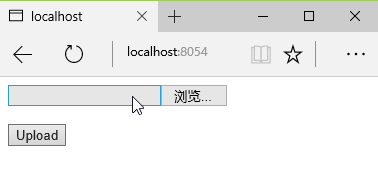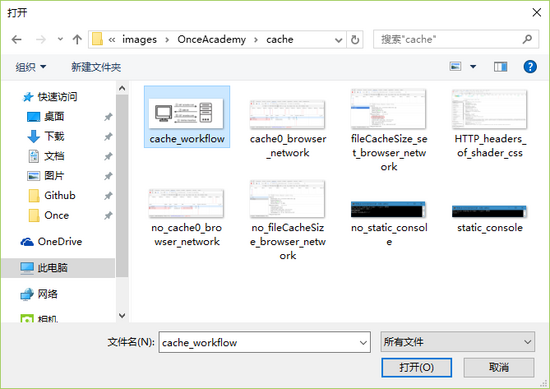
OnceIO is the underlying web framework of OnceDoc enterprise content (network disk). It can realize full caching of template files and static files. It does not require I/O operations at all to run, and supports client cache optimization, GZIP compression, etc. (only in First compression), has very good performance, saving you server costs. Its modular function allows your Web to be stored in a distributed manner, that is, an expansion package includes front-end, back-end and database definitions. You can delete functions by adding/deleting directories to achieve true Modular expansion. Here is a series of articles introducing how to use OnceIO.
In this chapter, we will demonstrate how to use OnceIO to implement the file upload function.
Build a form in a web page file
Take a simple web page file.html that only has a file upload function as an example:
<!DOCTYPE html> <html> <body> <form method="post" enctype="multipart/form-data" action="/file/upload"> <input type="file" name="file" /><br> <input type="submit" value="Upload" /> </form> </body> </html>
The browser display effect is like this:

Click on the blank bar or "Browse..." The button can open the file browsing window to select the file that needs to be uploaded:

Establish the server receiving file logic
The server file websvr.js code is like this:
var fs = require('fs')
var path = require('path')
var onceio = require('../onceio/onceio')
var app = onceio()
app.get('/', function(req, res){
res.render('file.html')
})
app.file('/file/upload', function(req, res) {
var fileInfo = req.files.file || {}
fs.link(fileInfo.path, path.join('./fileStore', fileInfo.name))
res.send('File Uploaded Successfully')
}).before(function(req, res) {
var contentLength = req.headers['content-length'] || 0
if (contentLength > 1048576) {
res.send({ error: 'Error: File Size Limit (1 MB) Exceeded' })
} else {
return true
}
})var fs = require('fs') and var path = require('path') respectively imports the file system (fs) module provided by Node.js for operating files and the path module for processing file paths.
app.file(path, callback).before(callback) is equivalent to app.use(path, callback, {file: true}).before(callback) and is a middleware that processes uploaded files.
After the file is uploaded, its size, storage address, name, format and modification time will be placed in the file attribute of req.files (the name is the value of name in the input tag of type 'file') , its size information will be placed in the content-length attribute of req.headers.
before function
before is one of the main differences between OnceIO and other web frameworks. It can perform some basic verification on files before receiving them, such as size, type, etc., in order to obtain the best performance. Return true indicates that the verification is successful and the file starts to be received, otherwise the connection is closed and the upload is cancelled. In before, the req.session object is not available because the session may exist in a file or database redis, and obtaining the session is an asynchronous process that takes time. The before function needs to make an immediate judgment on the legality of the file.
In this example, the before callback function determines whether the uploaded file exceeds the size limit based on the content-length in req.headers (developers can change the upper limit of file upload size by modifying the constant in the if statement. The unit of content-length is byte. , 1024 * 1024 represents 1 MB), if it is exceeded, the file will not be uploaded, and the server will return an error message; if it is not exceeded, the function return value is true, and the server will continue to execute the callback function in app.file to transfer the file from temporary The address is transferred to the specified storage address, and the file is uploaded here.
Solving the problem of duplicate file names
Our current server program cannot solve the problem of duplicate file names. If the user uploads a file with the same name, the server will return an error that the file already exists. In order to solve this problem, we can add a timestamp between the main file name and the extension name of the file. The function code for this processing is as follows:
var timestampName = function(fileName){
// get filename extension
var extName = path.extname(fileName)
// get base name of the file
var baseName = path.basename(fileName, extName)
// insert timestamp between base name and filename extension
// the plus sign ('+') before new Date() converts it into a number
return baseName + +new Date() + extName
}Then replace fileInfo.name in the fs.link statement with timestampName(fileInfo. name):
fs.link(fileInfo.path, path.join('./fileStore', timestampName(fileInfo.name)))
The improved server program allows users to upload files with the same name. Taking the file named 'cache_workflow.png' uploaded 5 times as an example, 5 names will appear in the server's file storage address. Files starting with 'cache_workflow' but with different timestamps:




